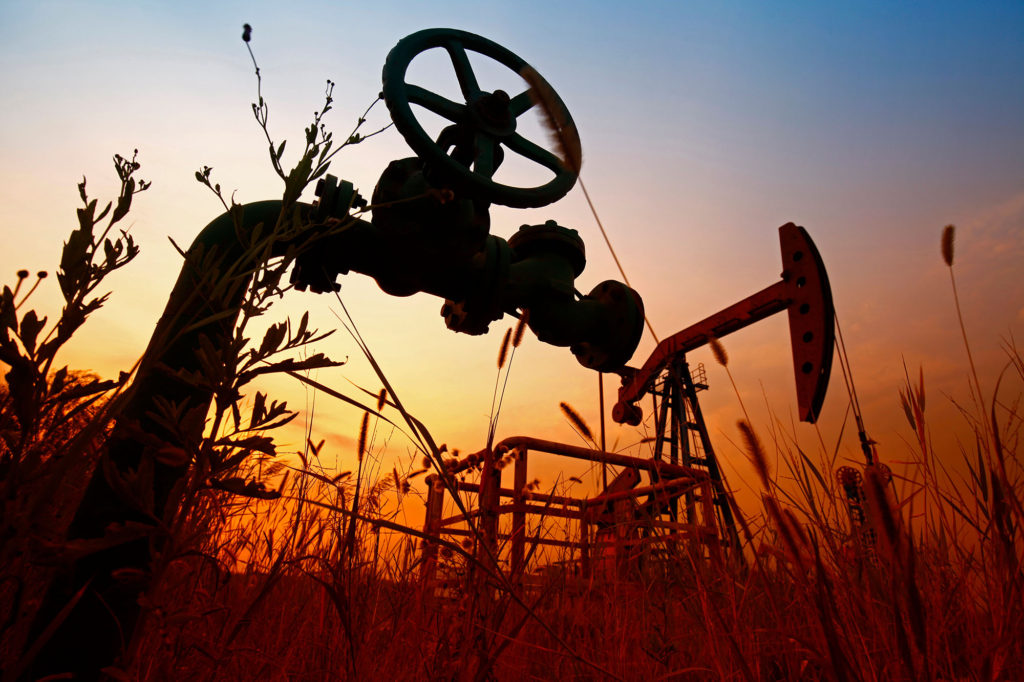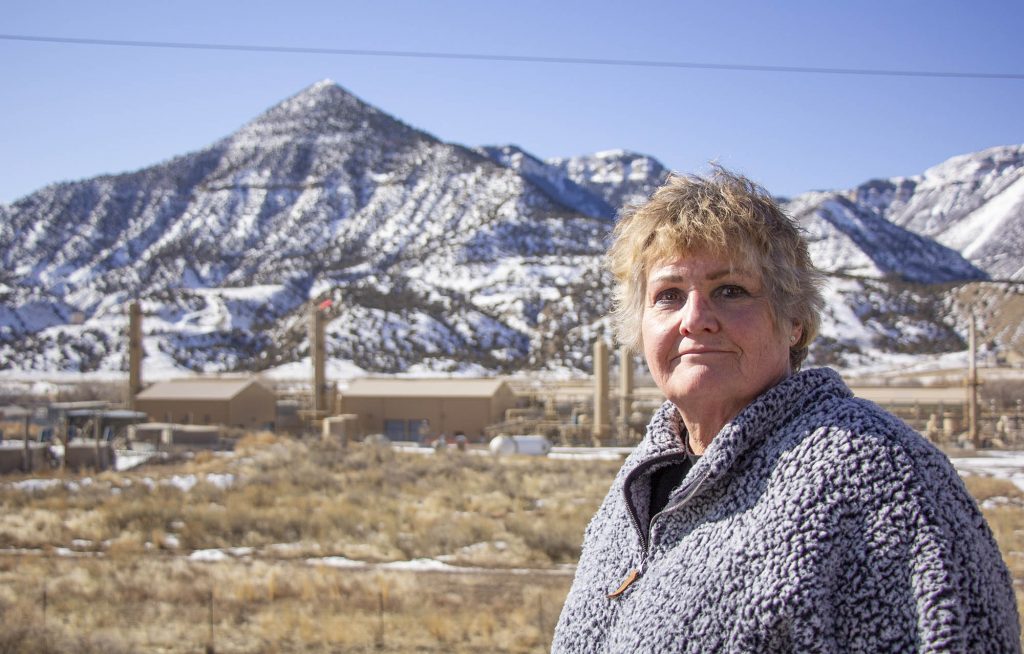Two wins in Colorado show how grassroots organizing has led to strongest-in-the-nation oil and gas protections.
These stories have been republished from Western Colorado Alliance’s website.
Grassroots organizing leads to better bonding and reclamation
Thanks to the hard work of our Alliance’s membership, Colorado is once again leading the way toward a healthier, safer, more responsible way of developing oil and gas in our state. In March, the Colorado Oil and Gas Conservation Commission (COGCC) adopted new rules increasing the amount of money operators set aside to clean up their oil and gas wells at the end of their productive life.
Plugging a well and reclaiming the land it was drilled on is an essential final step to prevent the venting of toxic chemicals and climate-warming methane into our air, as well as to protect our water and soil from contamination. However, plugging and reclamation are expensive, costing tens of thousands of dollars per well. This has led to many operators walking away from their mess, leaving it for the public to live with the consequences and foot the bill for cleaning it up.
With input from our Alliance, the COGCC has taken several steps to solve this problem in Colorado. Operators are required to set aside the full cost of plugging and reclaiming most low-producing wells, establish a timeline for the cleanup of potentially 10,000 such wells, and apply these new state rules to wells and sites on federally-owned lands. The rules also require the bonding of high-risk wells transferred between operators and bolster the state’s orphan well fund through operator-paid fees.
Never miss an opportunity to make the west even better: receive our action alerts.
While the success our Alliance experienced is historical, opportunities to further improve the COGCC’s financial assurance rules remain. In particular, broad discretion still exists for the COGCC to approve permits for operators without clear and convincing evidence of their financial health. Also problematic is the existence of blanket bonds that allow large operators to have an unlimited number of oil and gas wells despite the bond amount potentially covering just a fraction of the price of clean-up.
Despite these challenges, Colorado and our Alliance have taken major steps to protect public health, safety, welfare, wildlife, and the environment. Looking forward, the COGCC needs to substantially increase its staff to enforce its new regulations, and the state legislature must create an enterprise fund for the orphaned well program’s finances. Our Alliance is looking forward to monitoring the state’s progress and doing our part to hold both operators and decision-makers accountable.
A breath of fresh air: Reductions in leaking methane and other VOCs protect frontline communities
Last December (2021), Western Colorado Alliance and allied organizations from across Colorado achieved another victory for clean air and healthy communities. In the latest of a series of historic decisions at the Air Quality Control Commission, Alliance members won the toughest protections in the country to limit methane and toxic emissions from oil and gas facilities in our region.
“The Air Quality Control Commission’s vote to increase the rate of leak detection and repair inspections for all impacted communities is critically important for Western Colorado. All wells need to be inspected for leaks and all people deserve protections from toxic emissions, no matter where they live. These rules protect people, keep our air clean, and reduce methane emissions to help us limit the impacts of climate change.”
These new protections included increased leak detection and repair rates for oil and gas sites across the state, creating the nation’s toughest program to limit oil and gas facilities from leaking greenhouse gas and air toxics. We also prohibited the venting of these emissions during maintenance activities and secured greater protections for impacted communities living near gas wells.
The leak detection and repair rules going forward require oil and gas operators to conduct more frequent inspections, especially for low-producing wells, and make repairs when emissions are discovered. The largest facilities within disproportionately impacted communities and within 1,000 feet of homes will now be inspected monthly with optical gas imaging cameras. All new oil and gas facilities will also be inspected monthly.
“The Air Quality Control Commission’s vote to increase the rate of leak detection and repair inspections for all impacted communities is critically important for Western Colorado,” says Rodger Steen, chair of the Western Colorado Alliance’s Oil & Gas Committee. “All wells need to be inspected for leaks and all people deserve protections from toxic emissions, no matter where they live. These rules protect people, keep our air clean, and reduce methane emissions to help us limit the impacts of climate change.”
The final rules are designed to curb emissions of methane, ozone, and other gasses from oil and gas facilities statewide. It is estimated these new rules will result in a 51% reduction in methane emissions from the oil and gas sector by 2030, helping Colorado meet its greenhouse gas reduction targets set by state law in 2019.
In addition to requiring more frequent inspections for leaks within 1,000 feet of disproportionately impacted communities, the new rules require yearly inspections of low-producing wells previously subject to just a single, once-in-a-lifetime leak detection inspection. There are thousands of low-producing wells in Colorado that have not been inspected since 2016.
“Everyone wants to breathe clean air free from pollution and industry should do the work to ensure people living next to these facilities are safe. These are commonsense rules, people on the Western Slope deserve the same level of protection as people living on the Front Range.”
Some of the Commissioners struggled with the broad definition of a disproportionately impacted community in HB21-1261, the state law that requires protections and mitigation for such communities that are the site of intensive oil and gas development, and often less prosperous and more racially diverse. Battlement Mesa in Garfield County and Commerce City outside Denver are examples of such communities. Ultimately, they recognized that disproportionately impacted communities across the state deserve greater protections.
“Everyone wants to breathe clean air free from pollution and industry should do the work to ensure people living next to these facilities are safe,” says Leslie Robinson, Chair of the Grand Valley Citizens Alliance. “These are commonsense rules, people on the Western Slope deserve the same level of protection as people living on the Front Range.”
These new protections are important not only for Coloradans, but everyone in the country as they set a new bar for regulators to follow. As the Environmental Protection Agency seeks to strengthen nationwide emission standards for oil and gas development, the latest AQCC rule provides a strong benchmark for the agency to follow.
Thank you to all of the Alliance members who have rallied, testified, and worked for this victory over the past ten years. It has been a long and winding road but we are now on the path to meeting Colorado’s greenhouse gas targets and protecting our communities.
Learn more:
Bonding Crisis Looms in Colorado as Gas Prices Tip Into the Red
Fighting to Transition Power on Colorado’s Western Slope
Grassroots Organizing in Colorado Wins Historic Public Health and Safety Protections
As Coal Plants Close, Colorado Focuses on Just Transition

Yes, I want to help WORC elevate western voices and hold decision-makers accountable!






